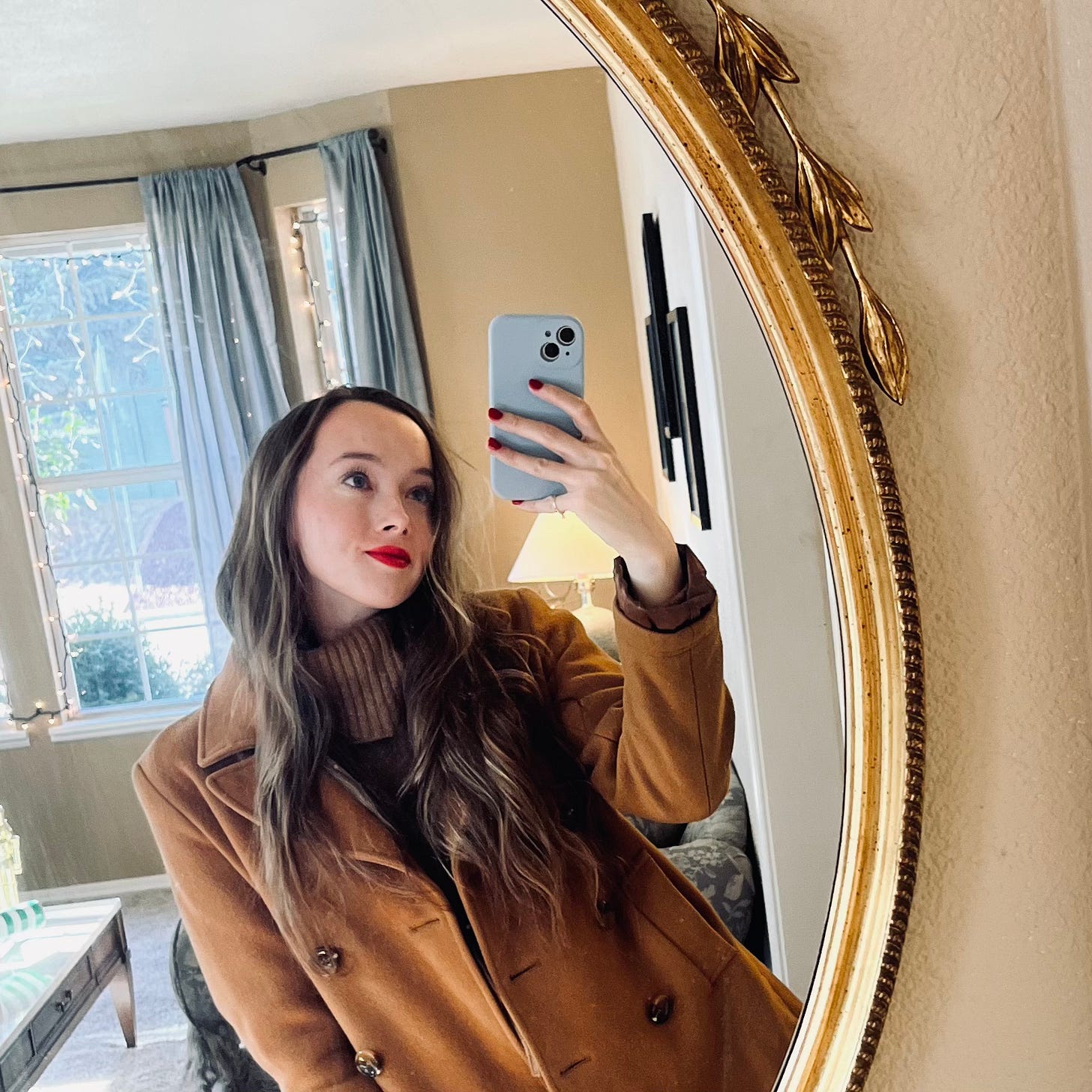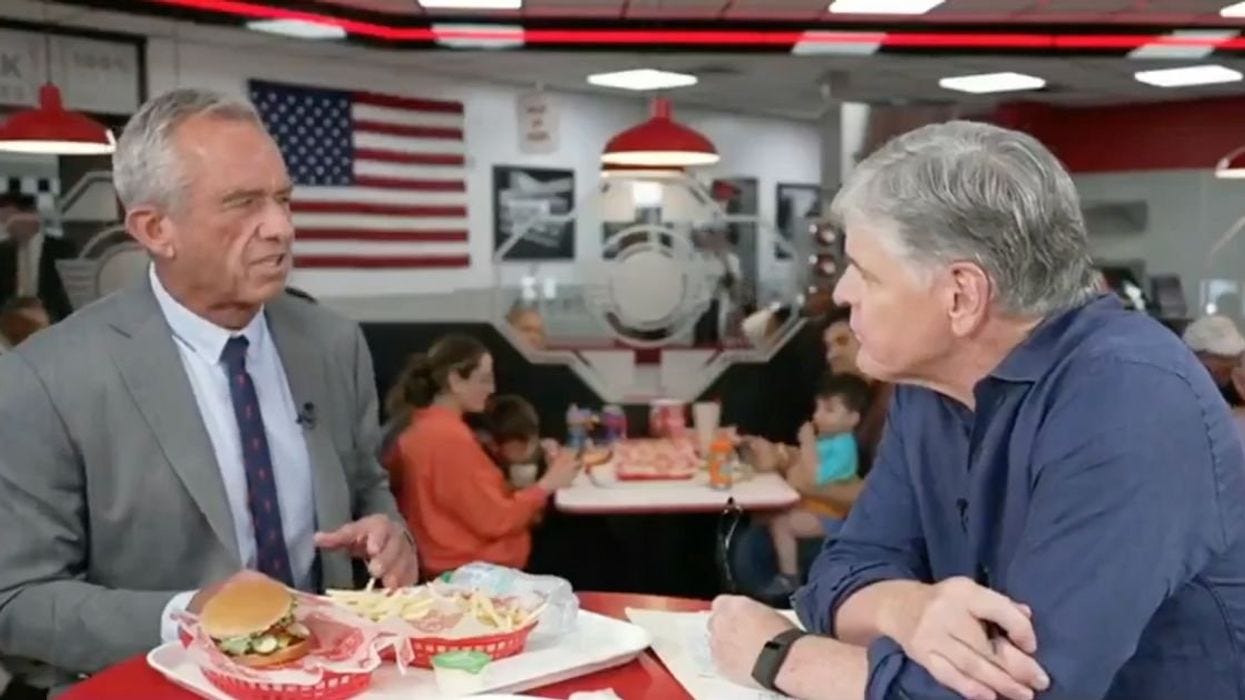Hello and welcome back to The Girl’s Guide! I’m trying something a little different with today’s format and have put the interview at the top — let me know if you like this change by replying to this email. If you missed the most recent newsletter, find it here.
Find me on Instagram and X so you don’t miss any of my work.
Interview with Hannah Brusven
Today’s interview is Hannah Brusven, founder of The Swish, a magazine for women that covers lifestyle, culture, and the British royal family. Hannah is a graduate of New Saint Andrews College in Moscow, Idaho, and can be found on Instagram, YouTube, and 𝕏. You can purchase the inaugural print issue of The Swish by clicking here.
If you are a writer interested in submitting a pitch to The Swish, check out this page.
What does your life look like right now?
My husband and I are relocating back to my southern roots in Nashville next month! Despite the chaos of a cross-country move and selling our house, I’ve just launched our inaugural issue of The Swish Magazine, Spring ‘25 Edition, and am still perfecting sourdough bagels.

What topics do you cover in The Swish?
The Swish explores classical femininity in trends, traditions, and lifestyles for an elegant life. Primarily for women ages 25 to 45 across the world (although our main audience is in the U.S., United Kingdom, Germany, Canada and Australia) who want to see culture return to embracing the truth, goodness and beauty of womanhood.
Why do you think so many American women are interested in the royals?
As passionate as Americans are about pioneering new frontiers in science, culture, and business, there is a longing within all of us to return to tradition. In recent years, America has lost a common identity rooted in history, which is something British culture still hangs onto by a thread. Women like Catherine, Princess of Wales embody something of an enigma to modern womanhood, and it's the roots in tradition that I believe to be so captivating. Royals embody a self-sacrificial duty that is so foreign to our culture that we find it fascinating — and the fashion doesn’t hurt, either.

What's the biggest lesson you’ve learned in your 20s?
As I am a little over half way through my 20s, the complete lessons from this decade are still to be revealed. However, I do believe I have come so far due to my copious approach. I entered the workforce early on in college, and decided to throw myself into learning as much as I could and to never shy away from opportunities. If I didn’t know how to do something, I went to Google to figure it out, or ask someone around me. I’ve learned to never be afraid to ask for help. Someone has probably been right where you are, and they really appreciate being asked for advice.
Do you have any beauty products you swear by?
I love getting facials! In between appointments, I use an amazing hydrogel mask that gives serious hydration and results, for a great price too from Amazon! Most masks I’ve used in the past don’t seem to give any results, but this one from Biodance seriously does the trick!
Evie’s Corner: Don’t Poison the Well
Have you ever heard the phrase “don’t poison the well?” Maybe one of your parents or grandparents said it. I’m not sure of the exact origins of this phrase, but it sounds like it’s been around since the time when everyone got their water from those wells with the little roof and the bucket on a string.
“Poisoning the well” may be an old-timey concept, but it still has relevance today. In both your social life and your professional life, you may be given the opportunity to “poison the well” for someone. What do I mean by that? It means that you’ll be tempted to ruin a relationship someone’s building before it even starts. My advice? Don’t do it.
I’ll give you an example from my own life. Years ago I met up with a friend who was about to start working closely with someone I knew — and didn’t think would be a great coworker. There was probably a lot I could say on that front. I remember that during that conversation I wondered what I should do. Should I detail all the unpleasant interactions I had with the future coworker? Should I say something vaguely disapproving about this individual? Or should I just keep my mouth shut?
Ultimately, I decided on the last option. The friend was already set to start her new job the next week, and I decided that inserting myself into her future relationship with her coworker, or “poisoning the well,” was not actually the kind option. If she had asked me questions about the individual before she had accepted the job, then I likely would have shared my opinion. But I just kept the conversation moving and soon we were talking about someone other than the not-so-great future coworker, and as far as I know everything’s been fine between them.
The truth is good, so sharing the truth is always good, right? Wrong. There are many reasons why choosing to “poison the well” can put others in difficult positions or even come back to bite YOU. First, going out of your way to convince others of your negative opinion of someone can reflect poorly on you. It can make you look insecure, vindictive, or gossipy. Second, interpersonal experiences are subjective. Everyone involved in an interaction will have a slightly different perspective on it. I’m not saying that you shouldn’t trust your own gut — but sometimes you have to let other people follow theirs. Interpersonal issues can be tough to explain to others. Sometimes it’s a “you had to be there” moment, and other people are just going to have their own “you had to be there” moments to truly understand. Third, some personalities mix together well, and some mix together poorly, just like ingredients in a recipe. You can’t assume everyone you know will have the same experience with an individual that you have.
Of course, I’m not telling you not to say anything negative about anybody ever again. That would be sooooo boring (kidding!). If you need to warn a friend about someone who is clearly lying to them, or poses a real danger to them, by all means do. But when it comes to the small stuff, you can’t think of yourself as the one who has to right every wrong. It’ll drive you crazy. As fallible humans, we tend to believe the first narrative we hear and then have a hard time changing our minds, even in the face of opposing evidence. I’ve believed negative things about people that weren’t true just because someone spoke ill of them before I really got to know them. Trust that your friends and loved ones can form their own opinions, and that you’ll be able to share yours when it truly counts.
Have you had an experience with “poisoning the well?” What happened? Do you think my advice misses the mark? Then let me know by replying to this email — I’d love to hear from you.
The Haps
Steak ‘n Shake Gives MAHA Movement Whiplash
In a recent newsletter, I covered burger chain Steak ‘n Shake’s decision to start frying their french fries in beef tallow — undoubtedly inspired by incoming Health & Human Services Secretary Robert F. Kennedy, Jr. Since then, they’ve been emBROILED in controversy (get it? broil? as in cooking haha) after health and wellness podcaster Alex Clark exposed that the fries still contain some vegetable oils. Steak ‘n Shake seems committed to shaking off seed oils, even if it takes a while, however, and just announced that they will be transitioning to using 100% Grade A Wisconsin butter in place of a seed oil blend on “select burgers and sandwiches.”
Here are some links to what I’ve been reading and listening to lately:
The Big “Travel” Lie (Substack):
shares her thoughts on the modern obsession with international travel. For some reason, it reminds me of this scene from Lady Bird — protagonist Christine wants to escape her hometown, not realizing she’s loved it all along.On Not Raising a Cyborg-Sexual (Fairer Disputations): “[W]hen I think about the romantic options my children will have as adults, I find myself more worried for my son than my daughters,” writes
. Same, girl, and this is (partially) why.The Power of Style with David Kibbe (Style POV): After listening to this podcast, I still don’t understand what the Kibbe body types are, but I was nevertheless very entertained!
Clothing Gluttony and Accumulation (Theology of Home): Today, we have more clothes in our closets than our great-grandmothers had in their entire lifetimes. Patricia Patnode writes about this unique aspect of modern life.
Ask Evie
Have a question you want me to answer in the newsletter? Click this link to send your question anonymously!






